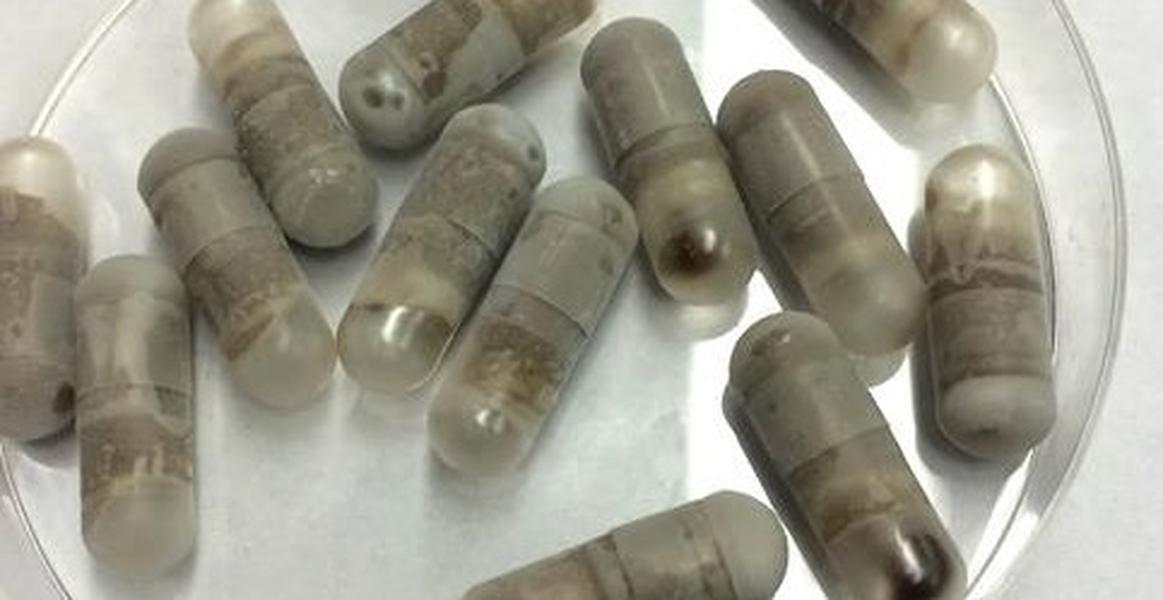Study: Frozen poop pills could safely combat bad bacteria


A free daily email with the biggest news stories of the day – and the best features from TheWeek.com
You are now subscribed
Your newsletter sign-up was successful
As the number of C. difficile cases increase due to antibiotic-resistant bacteria, researchers are looking at unusual ways to treat these infection — specifically, giving patients pills containing frozen feces.
C. difficile can cause severe diarrhea, bloating, and fever; managing infections costs the U.S. about $3.2 billion each year, and the germ is involved in close to 14,000 U.S. deaths annually, the Centers for Disease Control and Prevention says. Researchers have had luck with fecal transplants in the past because a healthy person's gut bacteria is able to get the sick person's GI tract back in order. In one study last year, 16 patients received fecal transplants (fresh stool and salted water) via nasal tubes into their small intestines, and for 13 of them, the infections cleared up in one treatment. Another group that took gelatin capsules filled with compacted fecal matter saw improvement in 31 out of 32 patients. (Don't gag: the patients didn't smell or taste anything.)
For a person who needs a transplant right away, it can be extremely difficult to quickly get a fresh, tested fecal sample. A team from Massachusetts General Hospital, Boston Children's Hospital, Harvard Medical School, and Tel Aviv University decided to try freezing the samples; after the feces was put into a blender with saline and strained, the concentrate was put into 1.6 gram capsules that were frozen at 112 degrees below zero. Then, 20 patients with mild to moderate C. difficile infections took 15 pills a day for two days in a row; 14 of those patients stopped having diarrhea.
The Week
Escape your echo chamber. Get the facts behind the news, plus analysis from multiple perspectives.

Sign up for The Week's Free Newsletters
From our morning news briefing to a weekly Good News Newsletter, get the best of The Week delivered directly to your inbox.
From our morning news briefing to a weekly Good News Newsletter, get the best of The Week delivered directly to your inbox.
Researchers think this could make fecal transplants more broadly accessible and potentially even safer. The study was published in the Journal of the American Medical Association, and presented on Saturday at IDWeek in Philadelphia.
A free daily email with the biggest news stories of the day – and the best features from TheWeek.com
Catherine Garcia has worked as a senior writer at The Week since 2014. Her writing and reporting have appeared in Entertainment Weekly, The New York Times, Wirecutter, NBC News and "The Book of Jezebel," among others. She's a graduate of the University of Redlands and the Columbia University Graduate School of Journalism.
-
 Buddhist monks’ US walk for peace
Buddhist monks’ US walk for peaceUnder the Radar Crowds have turned out on the roads from California to Washington and ‘millions are finding hope in their journey’
-
 American universities are losing ground to their foreign counterparts
American universities are losing ground to their foreign counterpartsThe Explainer While Harvard is still near the top, other colleges have slipped
-
 How to navigate dating apps to find ‘the one’
How to navigate dating apps to find ‘the one’The Week Recommends Put an end to endless swiping and make real romantic connections
-
 Nobody seems surprised Wagner's Prigozhin died under suspicious circumstances
Nobody seems surprised Wagner's Prigozhin died under suspicious circumstancesSpeed Read
-
 Western mountain climbers allegedly left Pakistani porter to die on K2
Western mountain climbers allegedly left Pakistani porter to die on K2Speed Read
-
 'Circular saw blades' divide controversial Rio Grande buoys installed by Texas governor
'Circular saw blades' divide controversial Rio Grande buoys installed by Texas governorSpeed Read
-
 Los Angeles city workers stage 1-day walkout over labor conditions
Los Angeles city workers stage 1-day walkout over labor conditionsSpeed Read
-
 Mega Millions jackpot climbs to an estimated $1.55 billion
Mega Millions jackpot climbs to an estimated $1.55 billionSpeed Read
-
 Bangladesh dealing with worst dengue fever outbreak on record
Bangladesh dealing with worst dengue fever outbreak on recordSpeed Read
-
 Glacial outburst flooding in Juneau destroys homes
Glacial outburst flooding in Juneau destroys homesSpeed Read
-
 Scotland seeking 'monster hunters' to search for fabled Loch Ness creature
Scotland seeking 'monster hunters' to search for fabled Loch Ness creatureSpeed Read
